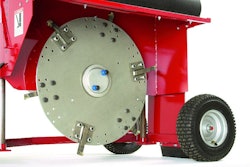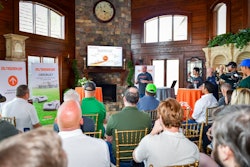 BioSafe Systems says it’s committed to “reduced-risk chemistries” that have no adverse impact on people or the environment.
BioSafe Systems says it’s committed to “reduced-risk chemistries” that have no adverse impact on people or the environment.BioSafe Systems, a maker of biodegradable disease and pest control products for landscapers and other horticultural markets, announced recently that it has confirmed its bactericide, ZeroTol 2.0, is not contributing to the collapse of honey bee colonies.
Colony collapse among honey bees has become a major concern in recent years. Exposure to pesticides has been suspected of contributing to the decline of bee populations. BioSafe Systems, which promotes its commitment to “sustainable solutions,” says it took steps earlier this year to ensure its products were not harming bees.
In a news release this week, the company said it began a laboratory study of ZeroTol 2.0’s effect on bees this past May. The research focused on assessing the contact toxicity of the product’s active ingredients.
In the study, honey bees were exposed to the chemical “through direct topical application of ZeroTol 2.0” to the insect. The exposed bees were then observed four hours after initial dosing and again at 24-hour intervals until 96 hours after exposure.
BioSafe Systems says its lab testers looked for any deaths among bees exposed to the bactericide and also for signs of intoxication such as ataxia, lethargy and hypersensitivity.
The company says its research demonstrated that ZeroTol 2.0 is “non-toxic and safe” for honey bees when sprayed according to label directions in areas where bees are active.









